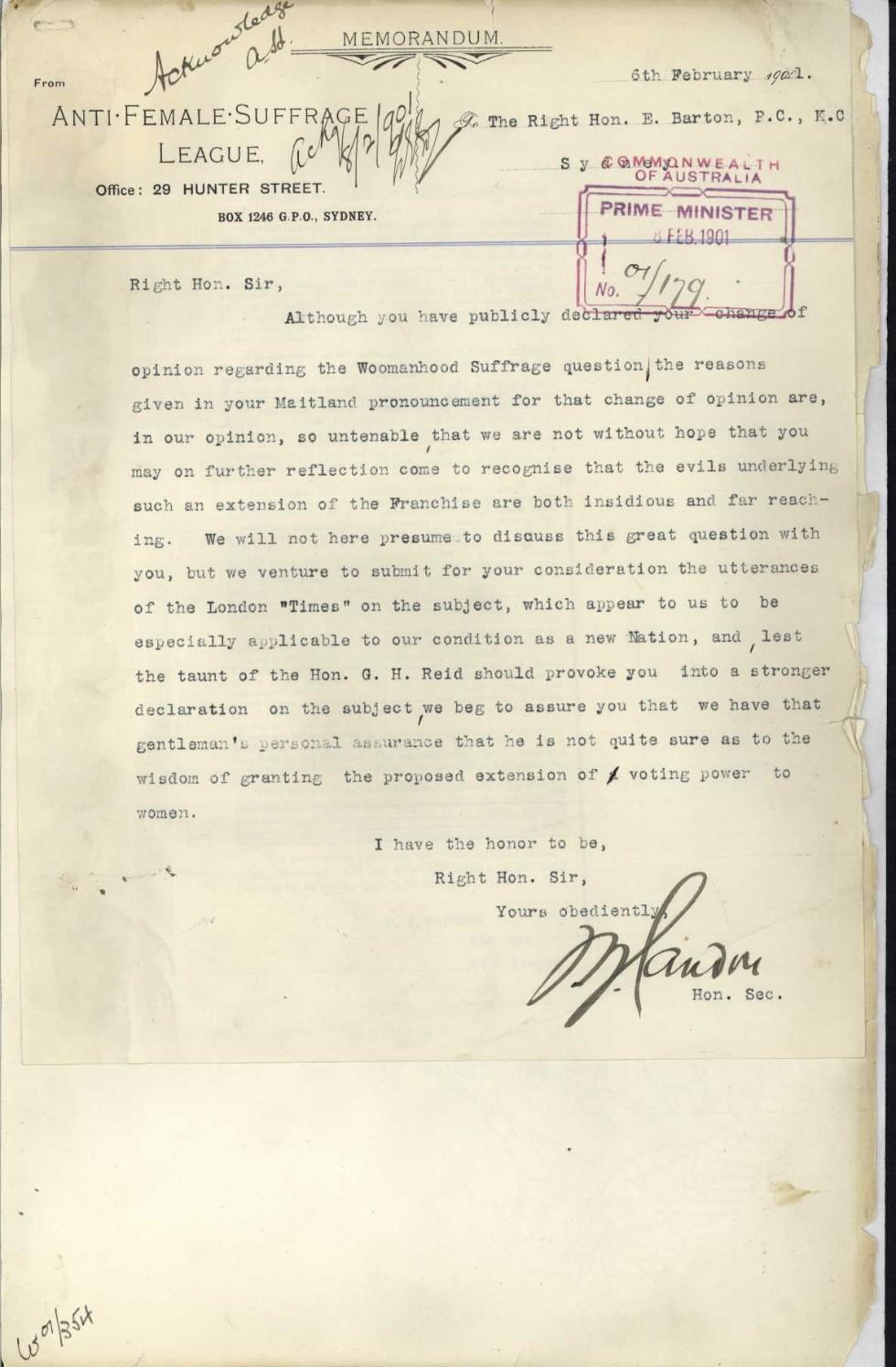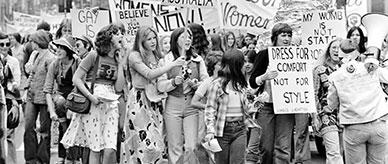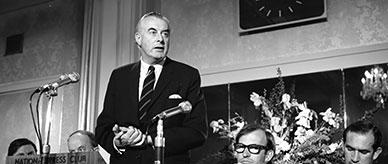


About this record
This letter from the Anti-Female-Suffrage League to Prime Minister Barton criticises Barton’s support for voting rights for women.
During the 1897 Adelaide Constitutional Convention, Edmund Barton was among many delegates who voiced their opposition to women’s suffrage—the right to vote and to stand in elections. However, during the convention he was forced to compromise on his position. Women in the colony of South Australia could already vote and stand in colonial elections, so delegates from South Australia threatened to withdraw from the proposed federation if women were unable to exercise these rights at a federal level.
In January 1901, Barton gave the first campaign speech of his candidacy for the electorate of Maitland. On the topic of women’s suffrage, Barton explained that, while he had not supported granting women the right to vote, in his experience doing so had not harmed politics or disrupted women’s domestic responsibilities. Despite this softening of attitude, he maintained that he did not support women being allowed to stand for Parliament.
Groups such as the Anti-Female-Suffrage-League advocated against female suffrage. They considered that a woman’s primary responsibility was to her husband and that if women had the vote it might create a rift between husband and wife. They also argued that women were too sensitive for politics, that politics would corrupt women and that women lacked the intelligence necessary to participate in the political process.
In March 1901, Barton became Prime Minister. Passage of the Commonwealth Franchise Act in 1902 granted women the right to vote and the right to stand in elections, which was a world first. However, at its passage in Parliament, Barton was notably absent.
Related themes
Need help with your research?
Learn how to interpret primary sources, use our collection and more.


